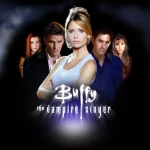The Breakfast Club (1985)
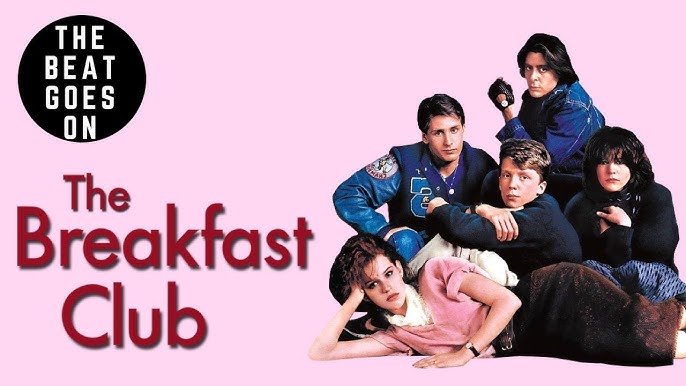
The Breakfast Club (1985), written and directed by John Hughes, is a classic American teen comedy-drama that has resonated with audiences for decades. Set in a high school detention room, the film explores the complexities of adolescence, identity, and societal expectations. Starring Emilio Estevez, Paul Gleason, Anthony Michael Hall, Judd Nelson, Molly Ringwald, and Ally Sheedy, the film brings together five high school students from different social cliques, forcing them to confront their differences and find common ground. The Breakfast Club is a seminal film in the teen genre, offering a deep exploration of the struggles of growing up.
The story of The Breakfast Club takes place on a Saturday morning in detention, where five high school students, each from a different social group, are forced to spend the day together. There is Andrew (Emilio Estevez), the jock; Brian (Anthony Michael Hall), the nerd; Claire (Molly Ringwald), the popular girl; John (Judd Nelson), the rebel; and Allison (Ally Sheedy), the oddball. Throughout the day, they begin to open up to one another, sharing their personal struggles and revealing the pressures they face in their everyday lives. Initially, they view each other through the lenses of stereotypes, but as the day progresses, they realize that they have more in common than they thought. The film’s central theme revolves around breaking down social barriers and discovering the humanity beneath the labels.
The character development in The Breakfast Club is one of its strongest elements. Each character starts as a stereotype, but over the course of the film, the audience sees them evolve. Andrew, the athlete, struggles with the pressure to conform to his father’s expectations. Brian, the overachiever, feels the weight of academic pressures. Claire, the popular girl, is forced to confront the emptiness of her social life. John, the rebel, hides the emotional pain he is dealing with. Allison, the outsider, is revealed to be much more than the eccentric character she initially appears to be. Through their interactions, the film challenges the idea of fixed identities and shows the complexity of each individual. By the end of the day, they have forged an unexpected bond and gained a deeper understanding of themselves and each other.
At the heart of The Breakfast Club is its critique of stereotypes and the labels that people impose on one another. The film highlights how societal expectations create divisions between individuals, especially during the turbulent years of adolescence. Each character represents a different stereotype—the jock, the nerd, the popular girl, the rebel, and the weirdo. Yet, as the film unfolds, these labels are stripped away, revealing the multifaceted nature of each character. Hughes uses the confinement of the detention room to symbolize the constraints of societal norms, and the characters’ emotional revelations serve as a reminder that everyone has their own unique struggles and vulnerabilities. The film encourages viewers to look beyond surface-level perceptions and see others for who they truly are.
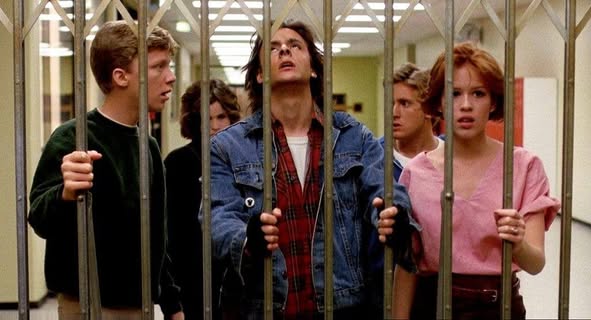
The Breakfast Club is a perfect blend of humor and emotion, making it a film that resonates with audiences of all ages. The witty dialogue and comedic moments lighten the heavy themes of the film, creating a balance between lightheartedness and introspection. The interactions between the characters are often humorous, especially when they challenge each other or engage in playful banter. However, the film doesn’t shy away from portraying the emotional depth of its characters. The raw, vulnerable moments—such as when the characters reveal their deepest fears and insecurities—add emotional weight to the story. The humor in The Breakfast Club serves as a coping mechanism for the characters, allowing them to confront their fears and make sense of their lives.
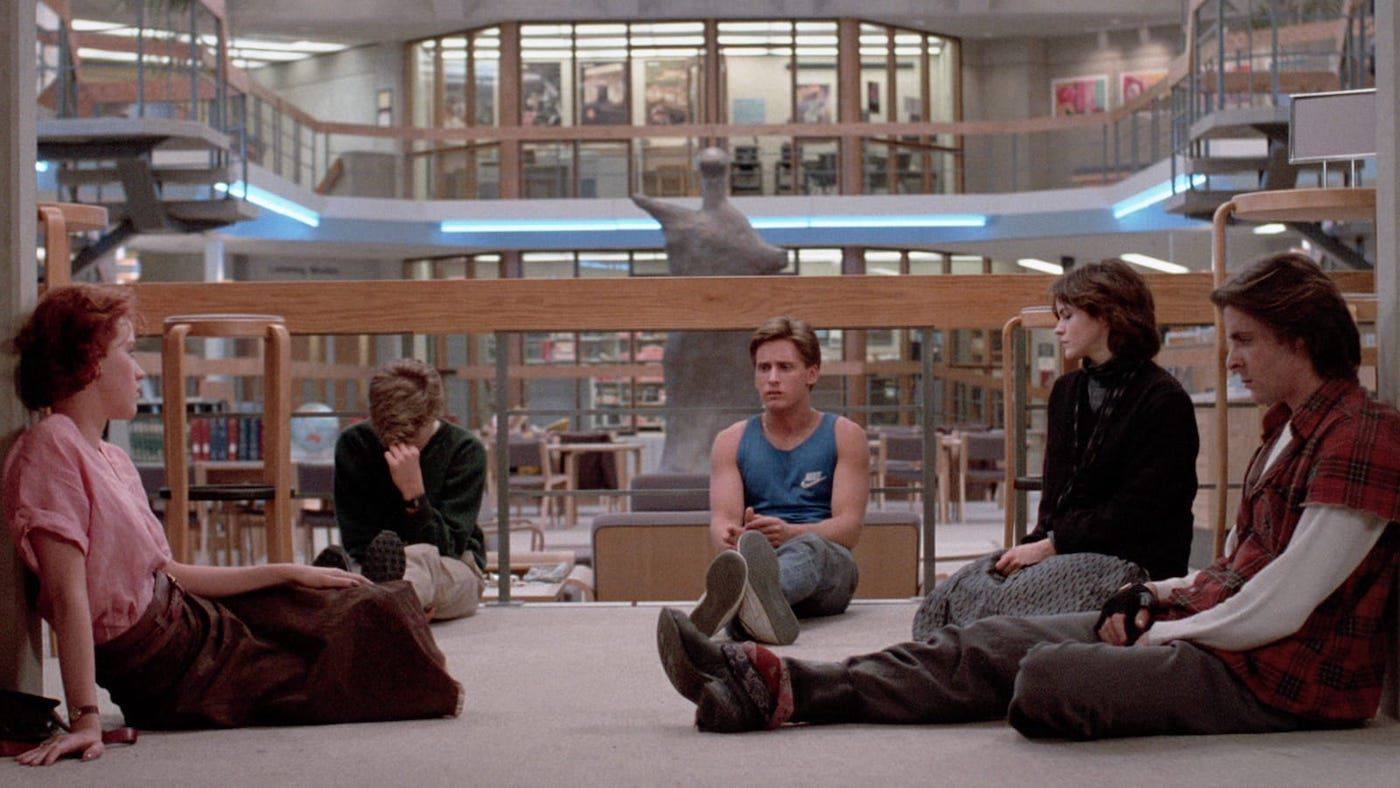
Since its release, The Breakfast Club has become an iconic film in the teen genre, often cited as one of the greatest films about adolescence. The film’s portrayal of the universal struggle to define one’s identity and navigate social pressures has made it relatable to generations of viewers. Its impact is also evident in the way it influenced future teen films, inspiring filmmakers to explore deeper, more complex themes within the context of coming-of-age stories. The characters’ lines and moments have become part of popular culture, with the film’s message about breaking down social barriers continuing to resonate. The timeless appeal of The Breakfast Club lies in its ability to speak to the universal experience of growing up, no matter the era.
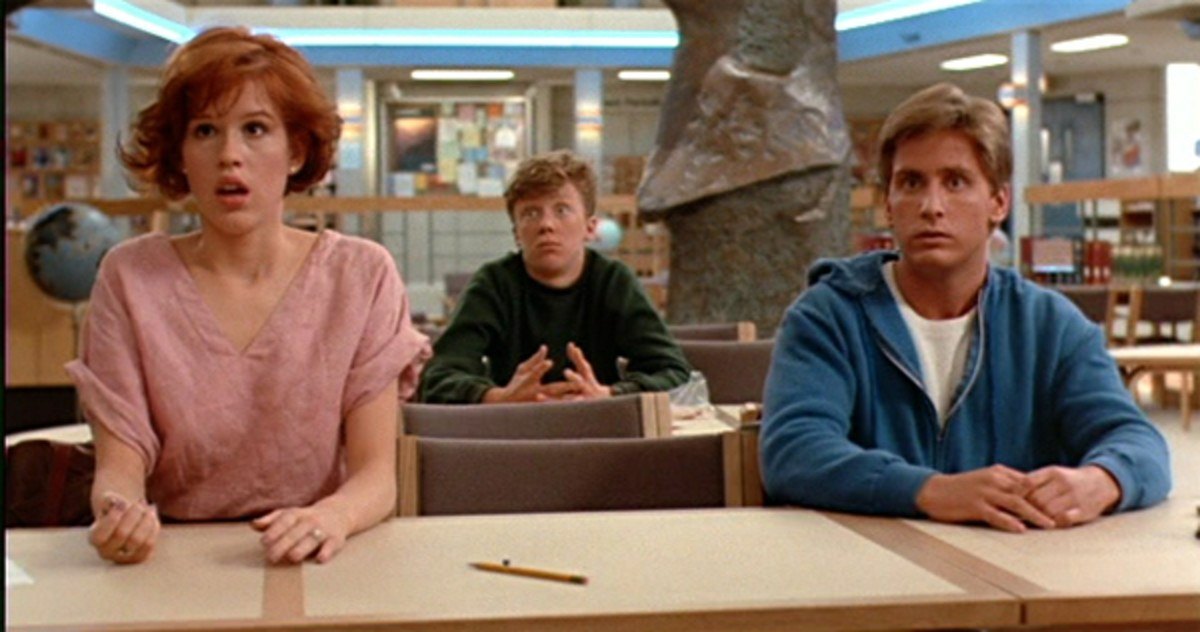
In conclusion, The Breakfast Club remains a quintessential coming-of-age film that offers a deep exploration of identity, societal expectations, and personal growth. Through its well-developed characters, sharp dialogue, and timeless themes, the film continues to captivate audiences. John Hughes’ direction and the stellar performances by the cast create a memorable cinematic experience that still resonates with viewers today. The Breakfast Club is more than just a teen comedy—it is a powerful reminder that beneath the labels and stereotypes, we are all complex individuals with our own struggles, dreams, and potential for change.







